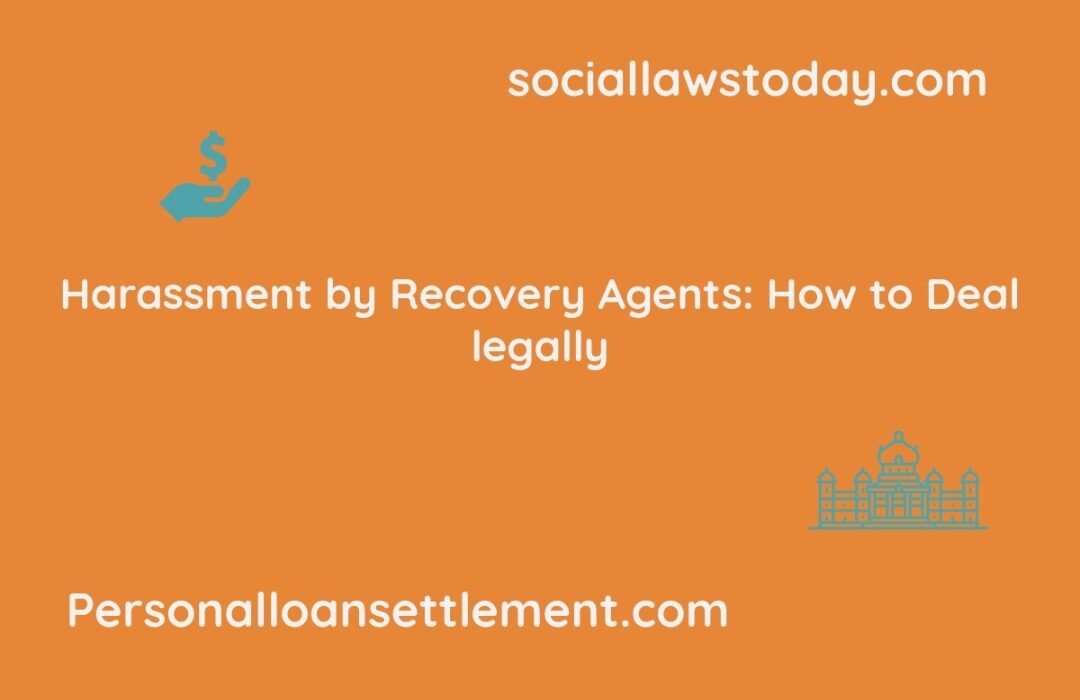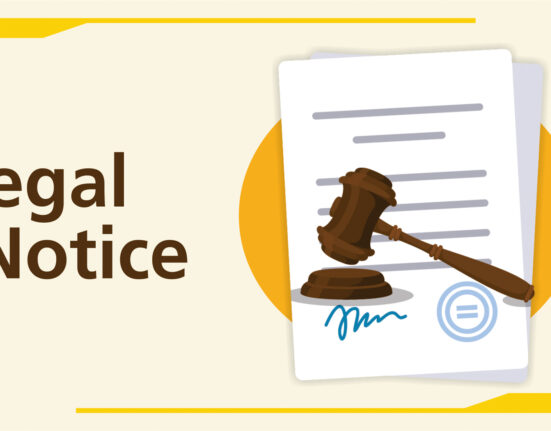This Article is a guest post Written by Advocate Deepansh Kaushik, he is an expert in Loan-related issues in India and a partner at a Loan Settlement law firm, that deals with all kinds of loan-related issues and has also helped innumerable people to come out of their debt in India. This article explains all about Harassment by Recovery Agents: How to Deal legally. It explains ways to complain against recovery agents and also guidelines laid down by the Honourable Supreme Court and RBI against harassment by recovery agents.
Introduction
When people find themselves unable to repay their debts due to financial or other challenges, they often face the distress caused by the relentless pursuit of recovery agents employed by banks.
“Harassment by Recovery Agents” comes into focus, shedding light on instances where these agents overstep boundaries and also create difficulties for individuals in debt. This article aims to provide insights into avoiding such harassment from recovery agents, understanding avenues for complaint, and also highlighting guidelines established by both the Supreme Court and the Reserve Bank of India (RBI).
In the following sections, we will delve into strategies to handle this situation and seek recourse against harassment.
What actions of the Bank or lender recovery agent are considered harassment?
- Excessive Contact: Making multiple contact attempts throughout the day, especially during early mornings or late evenings.
- Social Media Intrusion: Trying to reach out to individuals through social media platforms like Twitter and Facebook.
- Forcing Major Financial Decisions: Pressuring borrowers to sell their homes or take on additional credit to repay the debt.
- Threats and Contacting Relatives: Threatening or persistently contacting family members or relatives of the borrower.
- Rotating Debt Collectors: Employing multiple debt collectors in succession to pursue the borrower for payments.
- Misleading Communication: Using documents or business logos that appear official but are not, such as sending letters that resemble court forms.
- Unreasonable Payment Demands: Pressuring the borrower to pay the entire debt amount or larger instalments that they cannot afford.
- Public Embarrassment: Attempting to publicly shame or embarrass the borrower.
- Third-Party Communication: Revealing the borrower’s debts to another person or using intermediaries to convey messages, such as neighbours or relatives.
Moreover, Please bear in mind that recovery agents often have ambitious targets to meet and may also have incentives tied to the quantity and size of collections. This makes them a motivated group, and dealing with them can be quite challenging.
Be aware of the guidelines: As a debtor, you possess specific rights. Familiarizing yourself with these rights will aid you in managing interactions with a recovery agent.
Rights of Customers against harassment by recovery Agents
1) Verification of identity:
You can request recovery agents to provide their identity cards issued by the bank or authorized by the bank.
2) Privacy protection:
Your privacy is safeguarded. The recovery agent is prohibited from discussing your debt with anyone else. Thus, if the agent threatens to disclose your debt to neighbors or colleagues, there’s no need to panic. You have the right to file a complaint against such behavior with the bank.
3) Contact timing:
Recovery agents should only contact you between 7 a.m. and 7 p.m. However, if your work schedule doesn’t allow for this timeframe, they may reach out beyond these hours.
4) Communication preferences:
You have the liberty to choose when and where to receive recovery calls. You can also specify certain times or locations where you prefer not to be contacted. However, do note that they will respect your preferences only as long as they believe you’re not evading them.
5) Respectful conduct:
Recovery agents are required to maintain a polite and civil demeanour during interactions. Any use of abusive language is prohibited. Additionally, written communications from the bank should be easy to understand.
6) Investigation process:
If you file a complaint against a recovery agent, the bank is obligated to investigate the matter. This ensures that recovery agents are held accountable for their collection practices.
7) Sensitive circumstances:
In case of a family death or similar event, you can request the agent not to contact you or also not make visits for a certain period.
8) Documentation:
Banks keep records of conversations between customers and agents, including call times and durations. Copies of communications sent to customers are also retained.
9) Handling disputes:
If you encounter any disagreements or discrepancies regarding outstanding amounts, seek assistance from the lender.
10) Seeking assistance:
If you’re facing difficulties in making timely payments due to reasons like medical issues, job loss, or changing financial situations, it’s advisable to approach credit counselling agencies for help. These services are often provided free of charge.
11) Recourse against harassment:
If you believe that an agent is not adhering to the aforementioned rules, you should file a complaint. If your concerns are not addressed by the bank, you can escalate the matter to the banking ombudsman.
For further reference, you can find RBI circulars related to Recovery Agents engaged by Banks at this link: RBI Circulars – Recovery Agents.
Supreme Court judgment against violence/harassment done by Recovery agents
1) ICICI Bank vs Shanti Devi Sharma & Ors, 2008
In the pivotal case of ICICI Bank vs Shanti Devi Sharma & Ors, 2008, the Supreme Court delivered a landmark judgment reiterating its position that banks are prohibited from employing strong-arm tactics to recover loans from defaulters, which could ultimately drive them to take their own lives. Moreover, The bench, composed of Justices Tarun Chatterjee and Dalveer Bhandari, explicitly stated that they deemed it necessary to remind banks and other financial institutions that our society operates within a framework of civility and is governed by the principles of the rule of law.
Despite the ICICI Bank’s plea, the court declined to remove the comments made by the Delhi High Court. These comments held the Bank and its enforcers accountable for playing a role in pushing an individual towards suicide through threats. The Supreme Court’s ruling also emphasized the importance of ethical and legal practices in the financial sector and underscored the significance of adhering to the rule of law within a respectful society.
2) Magma Fincorp Ltd. v. Rajesh Kumar Tiwari, (2020) 10 SCC 399,
wherein the Supreme Court had “banned taking over possession by recourse to physical violence, assault and/or criminal intimidation. It also completely banned taking such possession by engaging gangsters, goons, and musclemen as so-called recovery agents”. Thus, this Court opined that “a recovery agent could not intercept a bus or a truck or a scorpio vehicle on way and direct the passengers to come down and leave the vehicle, unless they obtained appropriate order in accordance with law and also such orders were required to be executed only in accordance with law”
In a legal case titled “Smart Security Secret Service Agency vs State Bank of India,” the High Court of Kerala rendered a judgment declaring that the use of strong-arm tactics for debt recovery by banks and other financial institutions is illegal. The court also firmly stated that resorting to such tactics was not only against the principles of fairness and legality but also contradicted the safeguarding of public interests. The court further emphasized that these tactics went against the overarching policy objectives. Consequently, the High Court directed financial entities to adhere to lawful methods of operation and uphold the principles of justice.
The judgment was forwarded to the Governor of RBI to ensure that similar incidents would not occur in the future
Unable to Repay Loan, Recovery Agents are harassing What to do?
In many situations, recovery agents appointed by banks may resort to harassment, which is illegal and also unacceptable.
To handle recovery agents’ harassment effectively, here are some steps one can take:
a) File a Complaint:
If a recovery agent crosses the line of decency, individuals have the right to file a complaint. Initially, contact the bank branch and inform them about the issue. If there is no response, file a police complaint. Lodge an official complaint against the bank and the recovery agency, also ensuring the police acknowledge the receipt.
b) Seek Legal Protection:
Individuals can file a civil suit for injunction against the bank and recovery agent in court. This will prevent bank officials and recovery agents from visiting the individual’s home for debt recovery, providing relief from harassment and buying time to repay the debts.
c) Complaint with the Reserve Bank of India (RBI):
If facing threats or helplessness, individuals can file a complaint with the RBI. The RBI has issued guidelines for banks and recovery agents to prevent harassment.
d) Defamation Suit:
If the debt recovery is based on false information leading to a damaged credit score, individuals can file a defamation suit against the bank and recovery agency.
e) Trespass Complaint:
If recovery agents enter one’s house without permission, individuals can file a trespass complaint for violating their rights under Section 441 in The Indian Penal Code
f) Extortion Complaint:
If recovery agents forcefully collect money, an extortion case can also be filed against them.
ICICI Bank vs Shanti Devi Sharma & Ors, 2008: In this landmark judgment, the Supreme Court emphasized its stand that banks can’t send musclemen to recover advances from defaulters, subsequently compelling them to take their lives.
It’s important to remember that harassment and criminal intimidation are illegal. individuals have the right to protect themselves and seek legal recourse against such persons.
How to file an RBI complaint against banks or recovery agents in India for harassment? follow these steps:
To file a complaint against a bank or recovery agents for harassment in India with the Reserve Bank of India (RBI), follow these steps:
Step 1: Understand the Grounds of Complaint:
The Banking Ombudsman handles complaints related to various deficiencies in banking services. These can include:
- Non-adherence to the fair practices code adopted by the bank.
- Non-observance of the Code of Bank’s Commitments to Customers issued by the Banking Codes and Standards Board of India.
- Non-compliance with Reserve Bank guidelines on the engagement of recovery agents by banks.
Step 2: Determine When to File a Complaint:
You can file a complaint with the Banking Ombudsman if:
- The bank does not respond to your complaint within one month of receiving it.
- The bank rejects your complaint.
- You are dissatisfied with the response given by the bank.
Step 3: Follow the Procedure for Filing a Complaint:
You have different options for filing a complaint:
- Write a complaint on a plain piece of paper.
- File the complaint online through the dedicated portal (www.cms.rbi.org.in).
- Send the complaint via email to the Banking Ombudsman.
Step 4: Note the Fee for Filing Complaint:
Filing and resolving consumer complaints through the Banking Ombudsman is free of charge. There is no fee associated with the process.
Step 5: Understand Compensation for Mental Agony and Harassment:
The Banking Ombudsman has the authority to grant compensation for mental anguish and harassment caused by the bank’s actions. This compensation can amount to up to Rs 1 lakh (Rs 100,000), taking into account factors like the complainant’s time, expenses, and suffering.
Filing a complaint through the Banking Ombudsman Scheme offers a quick and also cost-effective avenue to address specific issues with banking services in India. Remember, no matter your financial situation, banks are not authorized to harass you. If you’re facing difficulties, consider utilizing this process to address your concerns and also protect your rights.
How our lawyer handles harassment cases: Legal Expertise
We had a client who was being harassed by recovery agents, causing him a lot of distress. They were making countless calls, up to 30-40 a day that too at odd times, which also broke the rules set by RBI against recovery agents. They also sent threats involving his family, which was against RBI guidelines. Our lawyer at personalloansettlement.com took swift action, sending a complaint to the bank’s nodal officer and also to other concerned authorities. The nodal officer reacted promptly, resolving the harassment issue, reducing the loan by 60%, and also compensating for the stress caused by the agents. Our lawyer supported him through the entire process, from responding to legal notices to also stopping harassment by reaching out to higher authorities.
GET IN TOUCH
Schedule a Call




Leave feedback about this